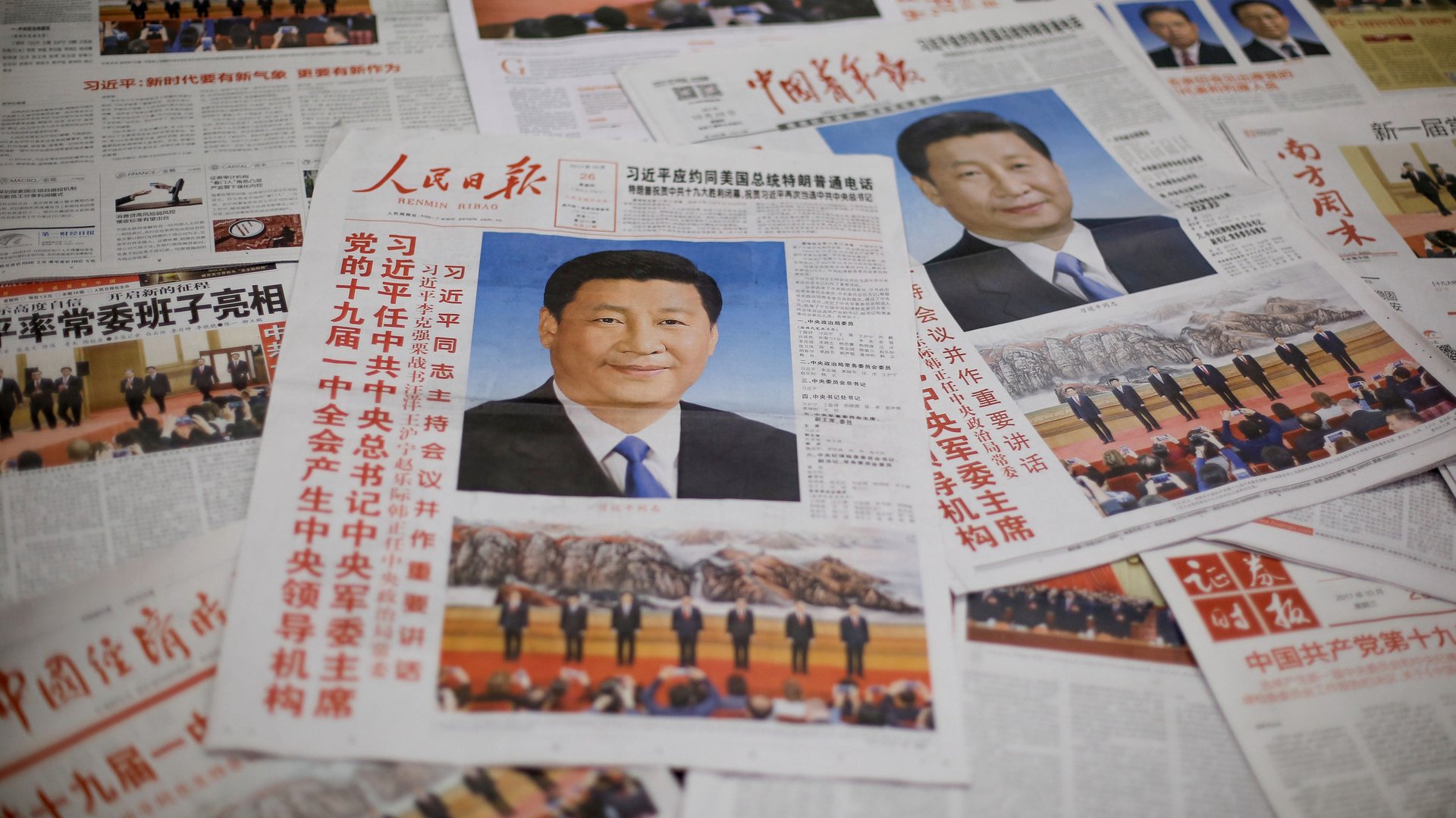China’s largest newspaper is helping the government censor the internet, and investors are thrilled
The People’s Daily bills itself as “among the most influential and authoritative newspapers in China.” As the official mouthpiece of the ruling Communist Party, and the country’s most widely read newspaper, it’s a justifiable claim. Lately, the newspaper has taken its influence beyond disseminating information: It’s helping the Chinese government to curtail it.


The People’s Daily bills itself as “among the most influential and authoritative newspapers in China.” As the official mouthpiece of the ruling Communist Party, and the country’s most widely read newspaper, it’s a justifiable claim. Lately, the newspaper has taken its influence beyond disseminating information: It’s helping the Chinese government to curtail it.
The company euphemistically referred to this burgeoning business as “content risk control” in a recent report (pdf, in Chinese). As the Hong Kong-based South China Morning Post reports, People.cn’s work entails “dispatching experienced censor officials to review stories and online streaming videos of other media platforms” to make sure that any content is in line with the party’s official doctrine and strictures.
This is good for business: the newspaper’s online operations, People.cn, is listed on the Shanghai stock market, and its shares have been soaring. In the past three months, People.cn’s share price has quadrupled, frequently pushing against Chinese market rules that limit daily gains and losses to 10%. In an update for investors (pdf, in Chinese) earlier this year, People.cn said that the content-review business was expected to generate revenue growth of 166% in 2018.
The media platforms that use People.cn’s services are not just individual outlets, but some of China’s online giants such as Tencent, a massive digital conglomerate that owns messaging platforms WeChat and QQ, as well as a variety of gaming platforms. Ordinarily, these companies hire their own censors to go through individual posts, deleting any that are deemed to be violent, sexual, or politically incorrect. People.cn’s censors can serve as an additional measure to avoid potentially expensive government censure, which might involve being taken offline for weeks at a time.
Measures to impose ideological control online under Chinese president Xi Jinping have expanded in recent months, extending most recently to a government-issued app where users study and take tests about their leader’s policies and beliefs. There’s money to be made in helping these efforts—and helping companies toe the party line.